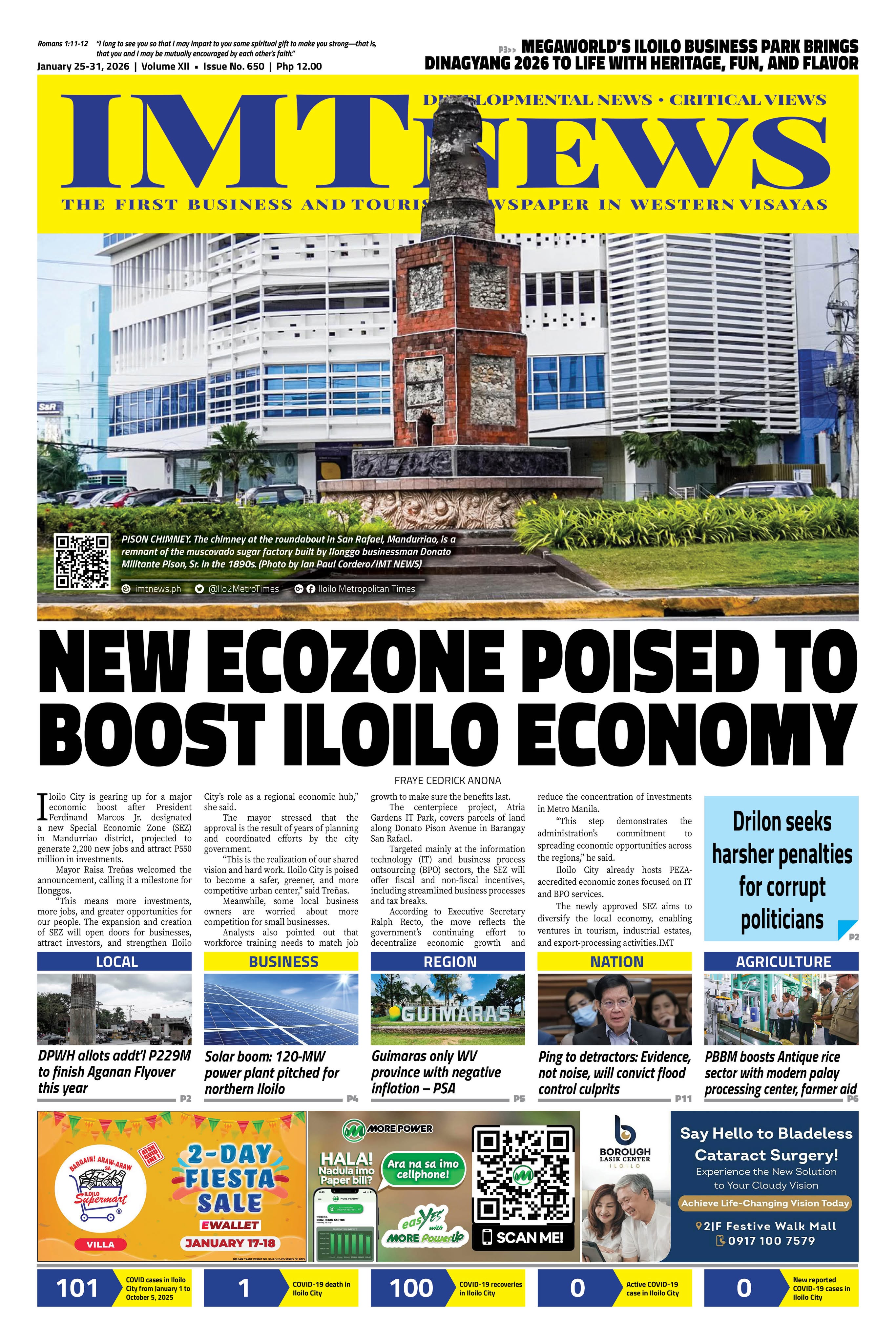During a quick stop at a quiet café near UP Visayas, I found myself saying something I never thought I would—defending President Bongbong Marcos Jr. It was not because I had changed sides, nor because I had forgotten Martial Law’s shadows or the promise of the Leni Robredo movement. It was simply one of those moments when you admit something uneasy: that one contender, at times, feels less reckless with power than the other.
“But did you not campaign for Leni?” asked one of the retired professors at the table, raising an eyebrow that felt like a nudge to memory. I nodded. “And I would do it again,” I replied. I still believe in her brand of leadership—principled, grounded, and people-first. But over his third cup of hot Caramel Macchiato and my second Iced Chocolate, I admitted what many quietly feel: Marcos Jr. has not driven us into the tailspin we feared. If anything, he has slowed it down, if only a bit.
Saying that in Iloilo, where the pink vote ran deep, felt like standing between waves. But it was not betrayal—it was honesty. Marcos, for all his baggage, has not matched Duterte’s chaos. The killings are down. Journalists breathe easier. Foreign policy, at least, has found a steadier, more decent tone. Few appointments suggest some effort to bring in capable hands, or at least more stable ones.
To be fair, the bar was on the floor. After six years of Duterte’s blood-soaked rule, where fear was dressed as law, almost anyone who spoke in full sentences and skipped the expletives felt like an upgrade. The CHR is no longer under siege. The Lower House is holding fiery hearings again. Sara Duterte’s impeachment has traction. The ICC continues to try the former president. These are not sweeping wins, but in a nation used to thunder, even the drip of accountability is refreshing.
Still, let us not get carried away. The economy tells another story. Inflation is still hitting ordinary homes hard. The latest PSA data shows underemployment worsening. Education remains stalled—too many students, too low functional literacy, too few classrooms. Hospitals are short-staffed, nurses still underpaid. The national debt has crossed 14 trillion pesos with not much to show for it. The picture is foggy, and many feel left behind.
What bothers many of us—especially teachers and public servants—is the lack of a clear plan. Marcos often appears more fond of ceremonies than solutions. Many say his decisions run through his wife, the Speaker, and a small circle of loyalists. Corruption whispers have become louder. Officials spend big while many tighten their belts. There is no stronger move to break old systems. The holes in government remain, and the patchwork feels cosmetic.
Among those who once feared a Marcos reboot, the worry has shifted. He is not authoritarian—but maybe too soft. Leadership requires more than calmness. It needs urgency. His quiet response to major issues, from rice crises to classroom shortages, reveals a leader who seems more invested in legacy branding than in solving root problems. Duterte’s actions were brutal but swift. Marcos often seems stuck between caution and confusion.
And yet, when we stack the two side by side, Marcos fares better. Duterte turned violence into spectacle. He declared war on his own people. Marcos, for all his flaws, has not unleashed that level of cruelty. He may be vague, but he is not vicious. Perhaps that is why many, tired but wary, accept this quieter version of flawed leadership.
But we cannot settle. This is not yet good governance—it is just a lighter weight on our backs. The opposition needs to do more than just point fingers. With leaders like Bam Aquino, Kiko Pangilinan, Risa Hontiveros, Chel Diokno, and Leila de Lima stepping up, there is hope. We must look beyond personalities and toward purpose. We need more voices in the room—not just to win elections, but to reshape the rules toward dignity and equity.
Still, I’m hoping—maybe naively, but sincerely—that better days might yet break through before 2028 comes knocking. That more leaders like Vico Sotto, gutsy and grounded, will rise up and show that servant leadership is not a dream but a choice. We need people in power who choose the common good over convenience, dignity over drama. Our democracy deserves more than a pause in dysfunction. It needs a reset.
In the classroom, students sometimes ask if picking between flawed choices is still a choice. I ask them what they are doing to make sure that next time, we have better options. We must raise the bar—not just in who we elect, but in what we expect. BBM has shown he is not Duterte. That alone is not an achievement, more of a sigh of relief. Yet, that is a starting point.
As I left the café, my college professor friend tapped my arm. “Wala ka na-pikon,” he said with a grin. I smiled back. Sometimes, that is the win—to disagree without destroying each other. But beyond that small moment, the real task is clear: not to applaud those who are simply not as bad, but to push for those who can be truly good.
Doc H fondly describes himself as a “student of and for life” who, like many others, aspires to a life-giving and why-driven world grounded in social justice and the pursuit of happiness. His views do not necessarily reflect those of the institutions he is employed or connected with.
From chaos to caution







